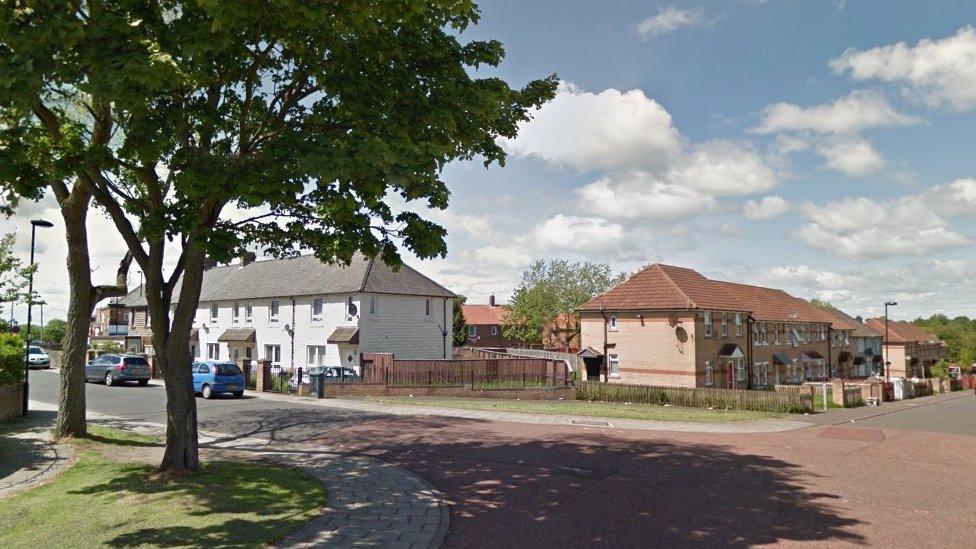New fee could mean fewer rental homes - Birmingham landlords
- Published
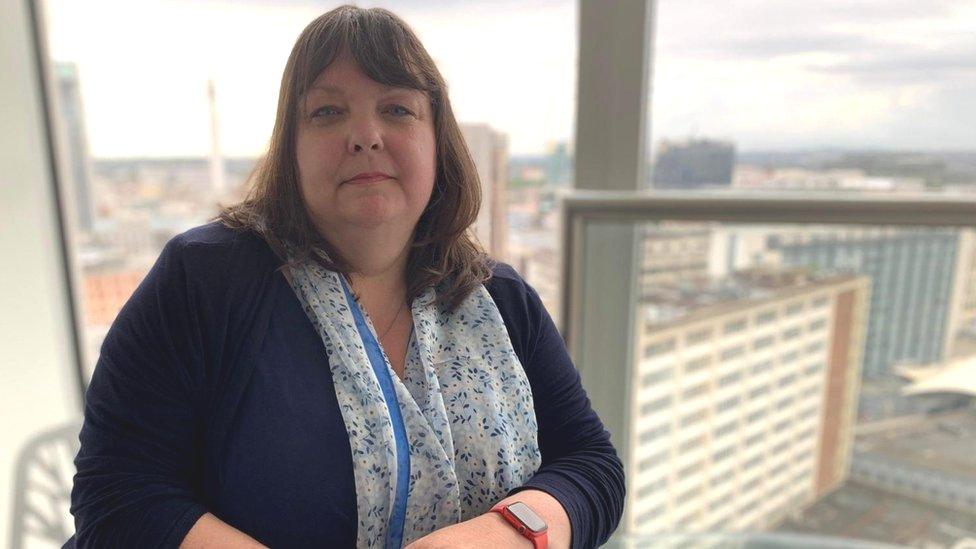
Landlord Liz Murphy fears the move will lead to more rental properties being sold
A new compulsory licensing scheme for some private landlords in Birmingham could lead to people selling up and fewer rental properties, owners claim.
Liz Murphy, who lets several flats in the city centre, said she was shocked to learn of the £700-per-property fee.
The city council says the charge will help fund inspections, giving it greater power to control housing standards and support tenants' welfare.
Twenty-five of Birmingham's 69 wards are affected by the change.
Liz owns several apartments in Birmingham city centre's Rotunda and said: "At a time when margins are small and ever decreasing, many landlords may just sell up and leave the market, which is not good for the community.
"I would love to hold the council to account and ask where my £700 will go. We can't see any value to this."
'Stamp out rogue landlords'
Over recent months landlords in the Midlands area have voiced concerns about the "squeeze" they are feeling due to inflation and mortgages rates.
The £700 fee is applicable to landlords in 25 wards in Birmingham, external which have a high concentration of rented properties - more than 20% of properties - and high levels of deprivation. The move is aimed at driving up living standards.
The council will begin to enforce the scheme from September and any landlord who refuses to pay could face court and an unlimited fine.
"I really want to get rid of rogue landlords as much as anybody, but it is penalising us good landlords and giving us absolutely nothing," said Liz.
She added it felt "very likely" the £700 would be passed on to tenants, something she described as "faulty logic" on the local authority's part.
"I think the problem the council and the government need to understand is that if they make it more expensive and more complicated for landlords, a lot of us will just sell up and stop being landlords.
"If those homes go in a housing crisis, that would be to [the] detriment of the city - yet the council are putting unnecessary expenses to those who are good landlords."
Between 40,000 and 50,000 properties are expected to be affected in Birmingham.
'How can the council justify 25 areas?'
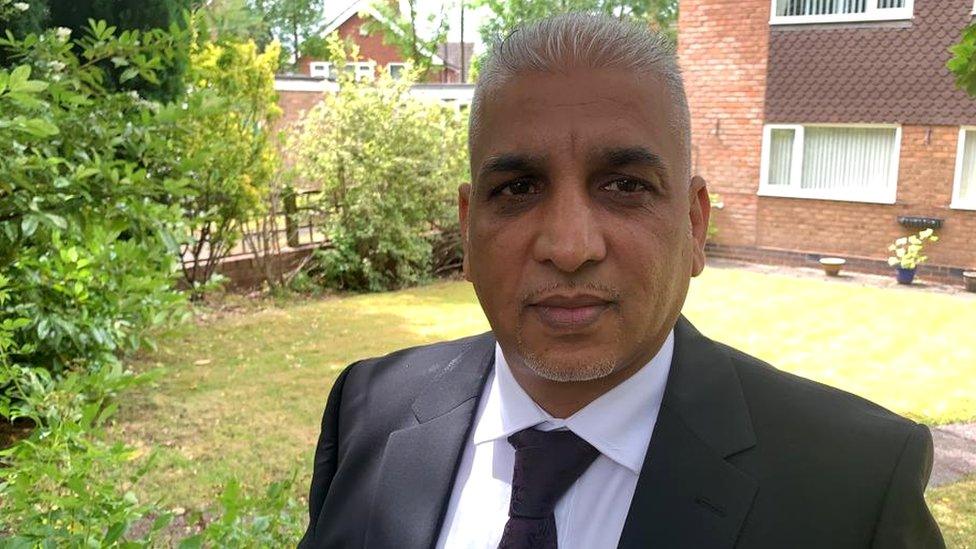
Lettings agent Mohammed Hamed said ethnic minorities in Birmingham would be unfairly impacted
Alum Rock, Bordesley Green, Handsworth, Ward End and Small Heath are among the places where landlords will be charged the new fee, external.
Letting agent and landlord Mohammed Hamed criticised the council's approach, which he said was unfairly targeting predominantly black and ethnic minority areas.
"If it was across the board and all over Birmingham then I could understand. But if you look at the percentage of people who live in these 25 wards, it is all ethnic minority."
Mohammed, from Hunters Estate Agents, in Handsworth, who has worked across Birmingham, said there were issues with the city's housing stock.
"You look at Kings Norton, Kings Heath, Druids Heath, Castle Bromwich, Castle Val; all other areas are in Birmingham and why aren't they affected?
"How can they justify that?"
One question in the minds of many landlords is, 'where is the £700 going'?
Mohammed said: "The council is cashing in. As everybody knows, the council has no money. How is this going to benefit the landlords or tenants? It doesn't benefit anybody."
Driving up standards
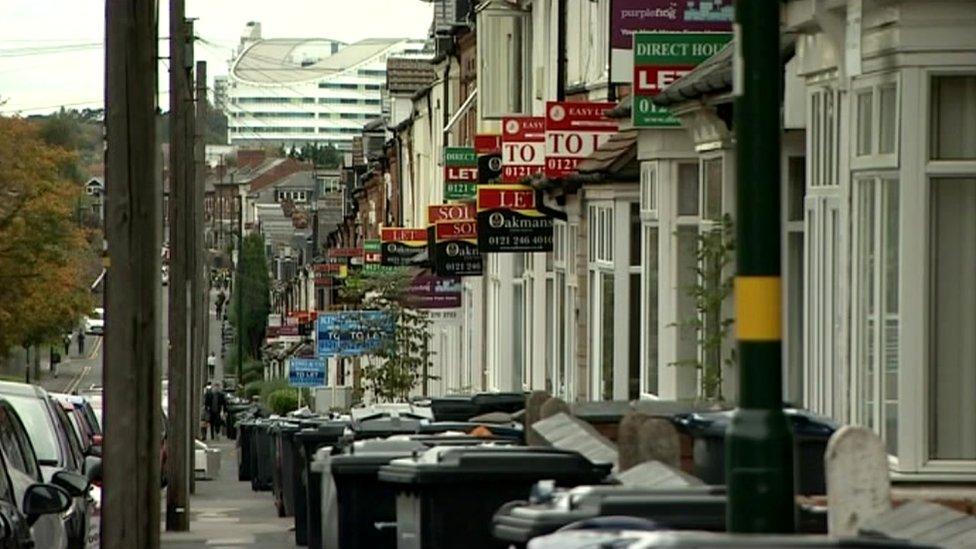
Landlords who between them own more than 40,000 rental properties across 25 wards in Birmingham will be charged
Since 2015, councils in more than 20 other cities and areas of England have introduced this selective licence, including in Liverpool, Scarborough, Durham and Southwark.
But it has not been without its issues. A number of reports document problems, external including a big variation in licensing fees and not all properties being inspected within the five-year term of the scheme.
But despite criticism, some local authorities say they have had success driving up standards. In Leicester, inspectors found hazards in almost half the properties they visited in a three-month period in January.
Data from the 2015 to 2020 scheme in Liverpool showed that, after more than 34,000 inspections, 65% of properties were not fully compliant on the first visit, with more than 300 successful landlord prosecutions over five years.
The scheme was renewed by central government in April 2022.
Selective licensing enables authorities to have more money to pay for property inspections, including those done without prior warning, and to address specific property issues.
Homes which are licensed as a house of multiple occupancy, an education establishment or let by a registered social landlord as a housing association are exempt.

Follow BBC West Midlands on Facebook, external, Twitter, external and Instagram, external. Send your story ideas to: newsonline.westmidlands@bbc.co.uk, external
Related topics
- Published8 July 2023
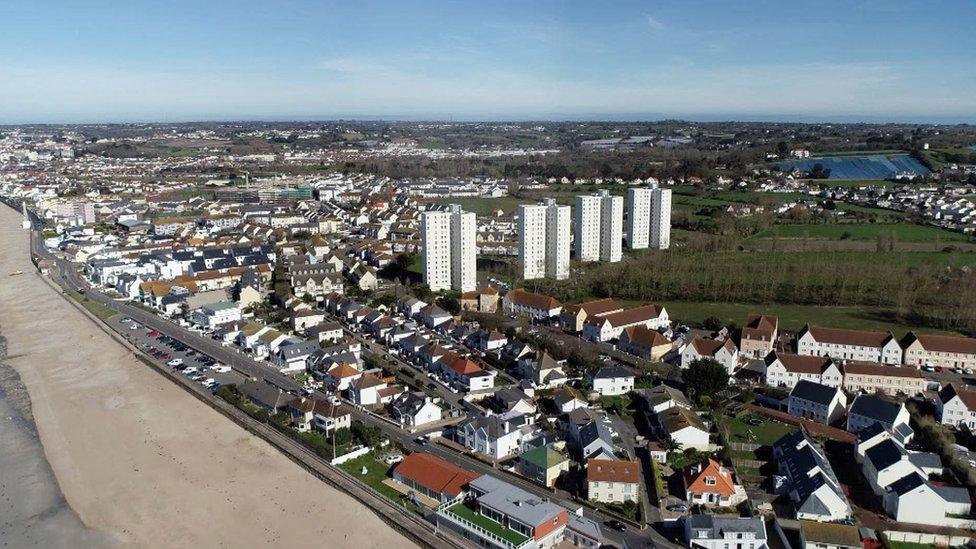
- Published13 January 2023
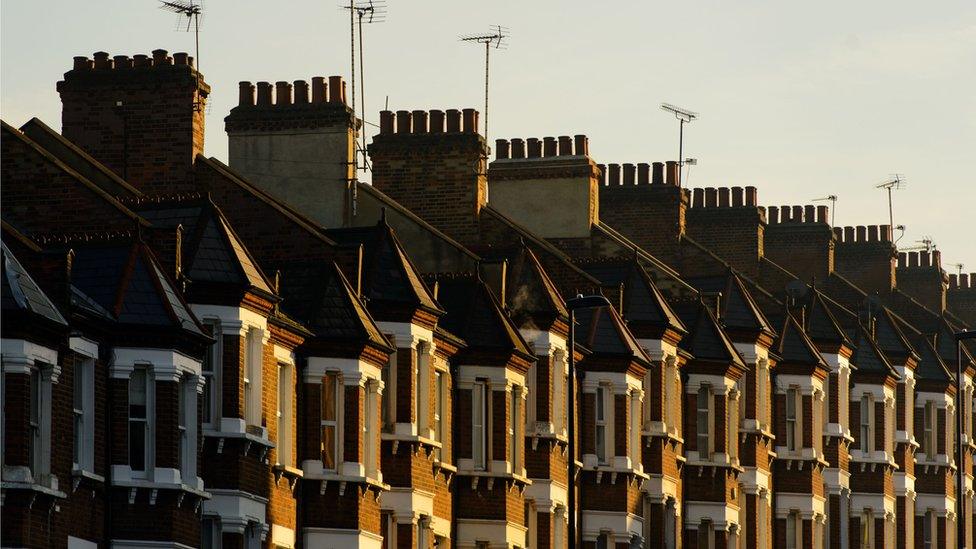
- Published3 December 2021
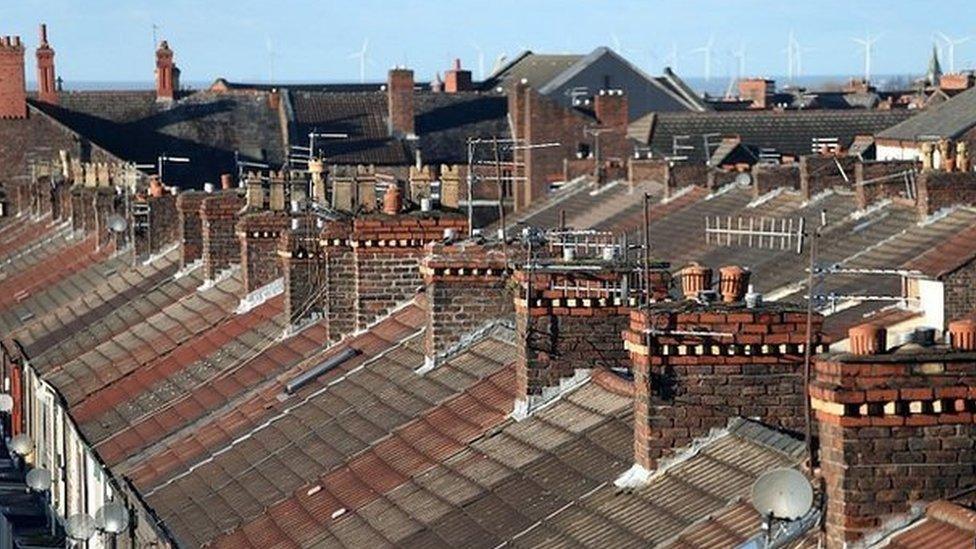
- Published12 June 2019
